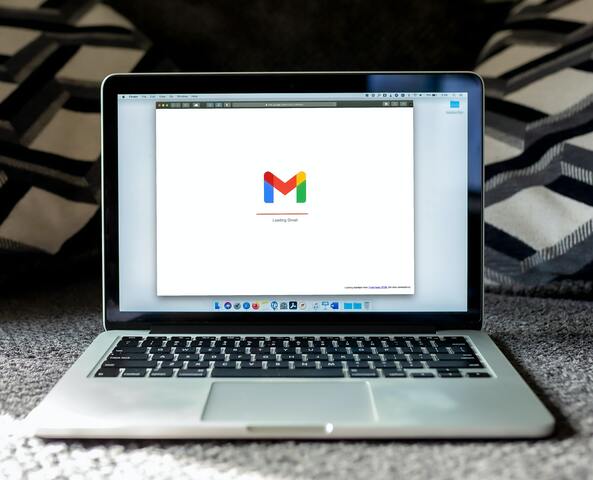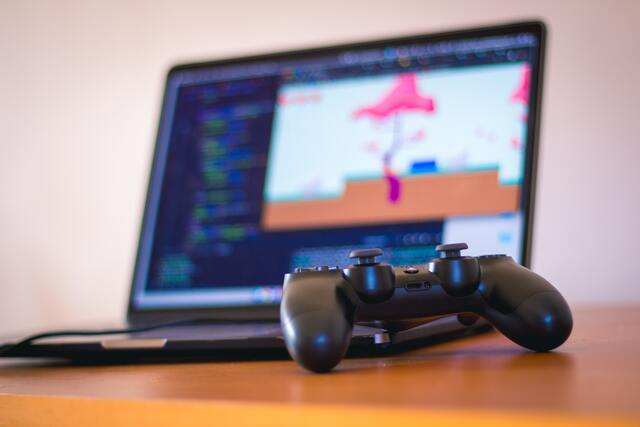2021-05-16
![]()
Back to Chrome OS blog.
CloudReady is Becoming Chrome OS

The two big Chromium OS players are combining into one streamlined product.
What’s CloudReady?
CloudReady is a fork of Chromium OS (the open source base for Chrome OS) made by a company called Neverware. The value proposition behind it is that you can revive old devices and make them faster by installing Chromium OS. Basically turning devices into DIY Chromebooks/Chromeboxes. At the very end of last year, they have been bought out by Google. Lots of changes have been in the works with more to come.
What Has Been Done So Far?
CloudReady has already made a lot of changes recently:
- CloudReady code has been fully integrated into Chromium OS 90.
- Partitions went from 27 to 12 to align with Chrome OS.
- Flatpak is removed.
- Python is removed.
- VirtualBox is removed.
What About Alternative Solutions To Those Missing Software?
Never fear, there are alternatives to everything that have been removed:
- Flatpak = Use the official Linux/Crositini environment to install Flatpaks.
- Python = Install with Chromebrew or use the official Linux/Crostini environment to install all of your required packages.
- VirtualBox = Chrome OS supports nested virtualization. In Linux/Crostini, install “virt-manager” to easily setup KVM virtual machines easily. I have a future blog post incoming for how to use that. Stay tuned! :-)
What’s Missing In CloudReady Compared To Chrome OS?
Only a few pieces are still missing from CloudReady. These include:
- Android = There is no Android support in CloudReady. Although Android itself is an open source operating system, the goodies we all rely on that are the essential Google Apps (including the Play Store) are proprietary and present a legal gray area. The company behind CloudReady has decided to stay safe by avoiding it.
- Powerwash = Powerwash (the Chromium OS reset feature) is biased towards Chrome OS. CloudReady currently requires a full re-installation to “powerwash” the operating system.
- Verified boot = CloudReady cannot verify that everything from hardware to software is correctly managed as it is not a Chromebook. It’s designed to be generic enough that it works on most desktop and laptop computers.
- Canary update channel = Only the Stable, Beta, and Dev update channels exist. The cutting-edge Canary channel is not available on CloudReady.
What to expect in the future?
Prediction time! In short: expect most of those missing features to come to CloudReady. Google is in a great position to take over the market with Chromebooks and, now, with legacy and home-built hardware if they provide a complete Chrome OS experience with CloudReady. Google I/O is a few days out. If we’re lucky, we’ll hear more about their ultimate plans there!
- Luke Short
Sources:
2021-03-15
![]()
Back to Chrome OS blog.
Why Chromebooks are Great for Tech Enthusiasts

There is a common misconception that a Chromebook is useless without an Internet connection. Or that it cannot be used for productivity. Or that it cannot run any programs besides Goolge Chrome. These statements are simply not true.
Chromebooks in the modern era provide a lot of value. Google, in the past 4 years, have been accelerating the amount of features added to the platform. Here are reasons why any geek would love to own a Chromebook.
- Updates = You always have the latest update and, trust me, it’s way more stable than Mac and Windows in my experience. If you have any problems, thanks to the special A/B partition layout of the Chromebook, you can easily revert back to an older known working version. On a new Chromebook, you can expect 8 years of updates.
- Rumors say that Chrome OS will soon detach Chrome from Chrome OS so you can continue to get updates to your web browser even after your device goes end-of-life.
- Linux support = Fun fact: Chrome OS is actually Gentoo. It, in and of itself, is Linux! Officially, you can use “Linux (Beta)" to gain access to a secure and isolated Debian container. Unofficially, you can install the Chromebrew package manager, unlock the Gentoo package manger, use Crouton to install other operating systems as chroots, setup different non-Debian containers, and even create virtual machines!
- Android support = Android apps add a large ecosystem of new apps for you to use. I cannot recommend enough to get a Chromebook with a touchscreen. It’ll make you wonder why Apple, now having iOS app support on Macs, hasn’t added touchscreens to their Macs (until you realize it’s to continue making a lot of money off iPad sales).
- Arm = Arm clearly has a bright future ahead of itself given the success of Apple’s M1 Macs. This year, Chromebooks will be coming out with almost-as-good-as-M1 chips. Rumor has it that Google might even be making their own Arm silicon! For developers, Chromebooks make great machines for development of Arm programs.
- Security = Have you heard of a Chromebook getting a virus? Me neither. Google’s number one goal with Chrome OS is making it as secure as possible. Even if there was a compromise, it is quick and easy to wipe the system back to a clean state. Most of the internals are locked behind many layers of security.
- Full transparency here: I actually disable a lot of the security goodness in favor of control over my Chromebook. At that point, it becomes as secure as any regular Linux desktop (which is pretty darn secure in the first place).
- Gaming = You can game on a Chromebook! And I’m not just talking Android apps and Stadia game streaming. Steam can be installed and used with OpenGL acceleration today. Not to mention, Steam is officially coming to Chromebooks with better graphics acceleration.
- Battery Life = The battery life on these things are unbelievably long. Most Chromebooks get between x1.5 and x2 compared to a traditional laptop. Google’s current flagship Chromebook, the Pixelbook Go, offers 12 hours of battery life.
- Size = Chromebooks come in all shapes and sizes to fit your taste. Regardless of the screen size, they normally are lightweight and have slim profiles.
Those are the pros of owning a Chromebook. It’s not perfect by any means, it has flaws that I’ll touch on in a follow-up article. However, I’d take a Chromebook over a Mac or Windows laptop anyday.
My Chromebook Pixel 2015 is going end-of-life in a few months. At which point I’ll probably be switching to Neverware’s CloudReady OS (recently acquired by Google, meaning more features are likely to come) which is a free fork of Chromium OS. As soon as Google releases a gaming Chromebook with streamlined Steam integration, I’ll be buying a new Chromebook to show my support. The hope is that, even though Google has a locked-down system, it’ll help the wider Linux gaming community with their efforts.
Until next time, au revoir!
2021-02-23
![]()
Back to Chrome OS blog.
EXCLUSIVE: Chromebooks to Support Vulkan Passthrough

Passthrough of the Vulkan graphics API library from a QEMU hypervisor to a virtual machine is coming to Linux thanks to work sponsored by Google! This is a big deal for many reasons.
Side note: this is an article I’ve done a lot of research in the past and was surprised that no one else has picked up the pieces yet. So here we are: my first exclusive article! Now that I have a blogging platform, it’s the perfect time and place to share this exciting news! Honestly, this is by far my favorite thing I’m looking forward to in 2021.
As it is today, the Virgil 3D GPU project has limited support for OpenGL passthrough to virtual machines. Chrome OS already uses Virgil for its Linux (Beta) feature which runs Debian Linux as a LXC container inside of a Chrome OS virtual machine. This allows games to run within the Linux environment with OpenGL acceleration.
The Vulkan passthrough work is being lead by Chia-I Wu who has done work for Valve in the past at LunarG and is currently working at Google on “Android Graphics”. Work-in-progress commits have been up for both mesa and virglrenderer projects for 7 months now. A user named Tomeu Vizoso has also reported that this work extends beyond Chrome OS and works with a normal Linux distribution. The work was originally planned to be released by Google in 2020 but likely was pushed pack due to COVID-19 complications.
What can we likely conclude from all of this? A lot, actually.
- Chromebooks are the main targeted platform. However, the entire Linux community will benefit from this.
- Valve is bringing Steam to Chromebooks via Borealis (an Ubuntu 18.04 virtual machine). Steam uses Proton as a compatibility layer for running Windows games on Linux. Valve only officially supports Vulkan (not OpenGL, although you can technically use OpenGL instead of Vulkan) for translating DirectX calls. Borealis is unlikely to be released until the Vulkan passthrough work is done.
- Android is being moved to a virtual machine on Chrome OS. Chia-I works on “Android Graphics” so it makes sense that they want to fully support GPU acceleration as they move towards more virtual machines.
- Zink (OpenGL on Vulkan) will also benefit both Borealis and Android. The Virgil project provides an incomplete form of OpenGL passthrough. By utilizing Zink with full Vulkan support, all of the major graphics back-ends will then be supported on Linux virtual machines. Currently, OpenGL 4.6 and OpenGL ES 3.1 are fully supported via Zink.
tl;dr? Chromebooks are about to become the biggest platform to support Linux gaming.
What an exciting time! Will 2021 be the year of the Linux laptop? Chrome OS has just became the second most popular operating system so it’s not impossible! ;-)
Sources:
Follow me (Luke Short) on Twitter or connect with me on LinkedIn if you want more in-depth Chrome OS and/or Linux gaming news!
UPDATE (2021-02-24):
More bold predictions. Borealis and Chromebooks will be the spiritual successors to Steam OS and Steam Machines!
UPDATE (2021-02-25):
I forgot to also mention that a Chromebook with a discrete graphics card has been in development for over a year now. It’s been a long time since I’ve heard about it. I’d bet that it’s being used to test Borealis and so far has not been ready for market due to the lack of Vulkan passthrough support.
UPDATE (2021-03-08):
Some people still think Steam on Chromebooks is a myth. Kan Liu, an executive in charge of Chrome OS, confirmed at CES 2020 to Android Police staff that Steam is coming to Chromebooks. They also confirmed it will use the same method as Linux on Chromebooks uses (i.e., running Steam in a virtual machine).


